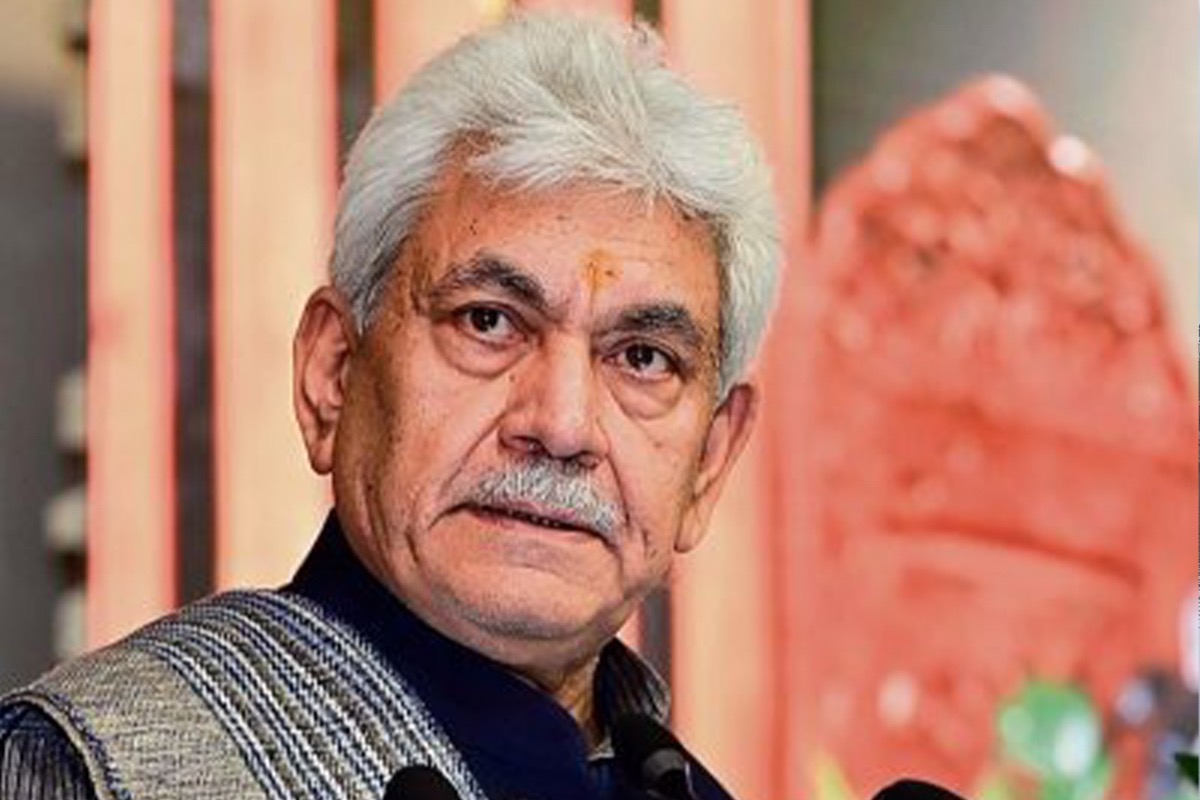

This is the third in a series of articles written by journalist David Devadas’ on the fourth anniversary of the introduction of constitutional changes in J&K

The years since the constitutional changes in Jammu and Kashmir have been marred by bureaucratic stagnation. The chief secretary kept the first lieutenant-governor on a tight leash, not letting him function. A plethora of IAS and IPS officers were brought in from outside, which effectively cut the long tentacles connecting politicians and the administration aiding the ecosystem of militancy and unrest. However, it also sidelined those who understood the region. This bureaucratic exercise did not bring any visible direction for Jammu and Kashmir’s growth either.
The result has been an extended ‘holding operation’, during which the union territory has remained in limbo — calm on the surface, but lacking movement on any properly-charted course. To be sure, offices and schools function punctually, and employees are scared to flout rules. Files move, and can be tracked online. But these measures are correctives, not the transformation that ‘Naya Kashmir’ promises, which could have won people over, and stymied critics.
READ MORE: ‘Kashmir Whisperers’ undoing gains made after Article 370 repeal
The banks of the Dal and the Jhelum have been beautified — as they had been by previous governments too — but lakes, streams, and rivers of Kashmir remain in a terrible shape. Indeed, the fact that several of them are dead or dying could have tragic consequences for the future, in light of climate change.
Setting right the chaos of the past ought to be an urgent priority. In the past, anyone built anything anywhere, so long as they could bribe someone in authority to look the other way. So chaotic was the situation that the Srinagar Development Authority built its headquarters on wetland. While such trends seem to have slowed, buildings still get constructed where rules don’t permit them. The end of this malpractice is important not only because of environmental concerns, but also because private constructions manifest the vast amounts of black money that have floated around the place for decades, feeding and perpetuating unrest and violence.
Among the things where terror funds went into are opulent mansions that have come up all over Kashmir. Another contributor to all this construction is the black money made by the vastly overstaffed and hitherto very corrupt bureaucracy of the erstwhile state, and by the politicians who ruled the place.
Economic downturn
Soon after the constitutional changes, there was hype of huge investments from big industrialists, Gulf countries, and by the government. There were plans for a dry port, world-class health tourism, and much more. But there is little sign of these in the current holding operation. There is not even a credible beginning.
READ MORE: Repeal of Article 370 ushered in new era: A Kashmiri’s account
On the other hand, incomes have shrunk. This was evident in the deserted look at many markets in the days before Eid — when markets used to be mobbed by shoppers in the past.
A lot of Kashmiris have apple orchards. For various reasons, last year’s apple crop was a disaster in terms of the price obtained in markets across the country. Government jobs have been the biggest economic mainstay and aspiration of people in Jammu and Kashmir. Several employees have been sacked over these years on charges of their association with terrorists and separatists while only a few have been recruited.
Meanwhile, corruption at the bottom of the pyramid of governance has been sharply curtailed. That is a very good thing, but it has made government service less lucrative.
On the other hand, private sector employment avenues have not adequately been created as alternative income sources. The administration ought to spur agribusinesses, software, electronics and other industries suited to the climate.
I have argued for years that the self-employed have a stake in peace and normalcy. On the other hand, those with government jobs have an incentive to strike or to back unrest, for they get their salaries even if they stay home.
Lack of responsiveness
One of the main complaints of people across Kashmir now is that they don’t have adequate avenues to turn to with their grievances. To be sure, some panchayats and municipalities have functioned efficiently and responsively. But there is only so much that these local bodies can do.
READ MORE: 4 years post-Article 370: Govt misses window of opportunity in J&K
Some IAS and IPS officers too have been very responsive, but even they are not essentially trained for or oriented to public interactions. That is why citizens who were happy four years ago that their politicians had been silenced now want them back. They crave a political network to which they could take their problems and needs.
That could potentially return things to square one — which this four-year holding operation has not left very far behind. Now that militancy appears to be afoot once more, it seems that these four years have been a tragically wasted opportunity.
It should have been apparent to strategists that the opportunity afforded during the last couple of years by Pakistan’s, China’s, the Taliban’s, Turkey’s, and the West’s preoccupations was temporary, and must be utilised without delay. Now, this window of opportunity seems to be closing.
(David Devadas is a seasoned journalist with a deep understanding of the Kashmir issue. He is the author of The Story of Kashmir and The Generation of Rage in Kashmir (OUP, 2018). He also analyses politics, geopolitics and security matters.)
Disclaimer: Views expressed above are the author’s own.